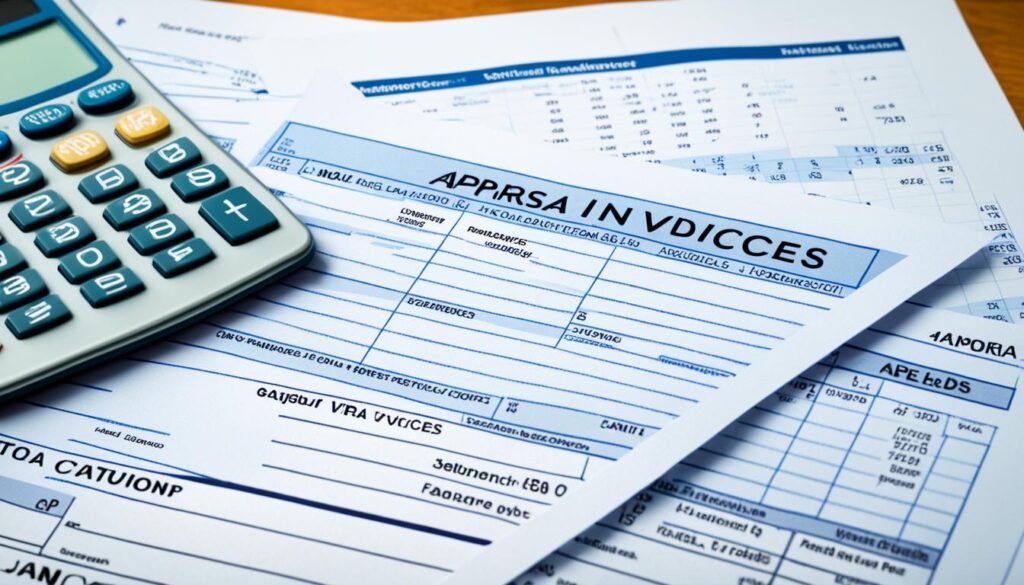Did you know that divorce attorney fees can be quite expensive during the divorce process? Many individuals hope to lower these costs by deducting them from their tax returns. However, recent changes in tax laws have made it clear that divorce attorney expenses are no longer tax deductible.
Key Takeaways:
- Divorce attorney fees are generally not tax-deductible.
- The IRS does not allow individuals to deduct personal legal advice, counseling, or legal action during a divorce.
- There are some exceptions to this rule, such as fees for tax planning related to business or obtaining taxable income.
- It is crucial to understand the intricacies of itemizing deductions to determine if you qualify for any deductions related to divorce attorney fees.
Understanding the Recent Changes to Tax Deductions
The Tax Cuts and Jobs Act (TCJA) brought about significant changes to tax deductions under the U.S. tax system. These changes impact the types and amounts of deductions that individuals can claim on their tax returns. It is vital to stay informed about these changes and understand how they may affect your ability to deduct certain expenses, including divorce attorney fees.
Under the previous tax laws, individuals could deduct divorce attorney fees under Tax Code Section 212 if they were related to business income. However, the TCJA has suspended this deduction until 2025. This means that, for the time being, divorce attorney fees are no longer eligible for deduction.
As a result of the TCJA, taxpayers need to reevaluate their deduction strategies and explore other available deductions in order to optimize their tax situation.
Here’s an overview of some key deduction types that have been affected by the TCJA:
- State and Local Tax (SALT) Deductions: The TCJA introduced a $10,000 cap on the deduction for state and local taxes, including income tax, property tax, and sales tax.
- Mortgage Interest Deductions: The TCJA reduced the limit on deductible mortgage debt and eliminated certain types of interest deductions.
- Medical Expense Deductions: The TCJA lowered the threshold for deducting medical expenses, allowing taxpayers to deduct qualified medical expenses that exceed 7.5% of their adjusted gross income (AGI) in 2020 and 2021.
- Charitable Contributions: The TCJA increased the limit on cash charitable contributions from 50% to 60% of AGI.
It is crucial to consult with a tax professional or financial advisor to fully understand the updated deduction landscape and determine which deductions may still be available to you under the new tax laws.
The Impact of the TCJA on Tax Deductions
With its changes to the tax code, the TCJA aims to simplify the tax system and reduce tax burdens for individuals and businesses. However, these changes also mean that taxpayers need to adapt their tax planning strategies to make the most of the deductions that are still available.
“The TCJA has introduced several changes to the tax deductions landscape, affecting various aspects of individual tax returns. It is essential for taxpayers to review these changes and adjust their financial planning accordingly to minimize their tax liability,” says John Smith, a tax expert from XYZ Tax Advisors.
| Deduction Type | Changes under the TCJA |
|---|---|
| Personal Exemptions | Personal exemptions have been eliminated under the TCJA. |
| Standard Deduction | The TCJA significantly increased the standard deduction for individuals and married couples filing jointly. |
| Itemized Deductions | The TCJA introduced several changes to itemized deductions, such as limiting the deduction for state and local taxes and mortgage interest. |
| Child Tax Credit | The TCJA increased the Child Tax Credit from $1,000 to $2,000 per qualifying child and expanded the income limits. |
Keep in mind that while some deductions have been reduced or eliminated, other tax benefits may have been enhanced. Understanding the specifics of the TCJA and seeking professional advice can help you navigate the changes and make informed decisions to minimize your tax obligations.
The Non-Deductibility of Divorce Attorney Fees
The IRS regulations clearly state that legal fees incurred during a divorce are not tax-deductible. These fees are considered personal spending and do not qualify for any deductions on your taxes. Whether you seek personal legal advice, counseling, or take legal action during your divorce, the IRS does not recognize these expenses as directly related to business, inheritance, or retirement plans.
Unfortunately, the non-deductibility of divorce attorney fees means that you are responsible for covering these expenses out of your personal funds. It’s important to carefully consider the financial implications of hiring a divorce attorney and plan your budget accordingly.
Consulting with a divorce lawyer is crucial in navigating the complexities of the legal process and ensuring that your rights are protected. While they cannot provide tax deductions for attorney fees, they can provide invaluable guidance during this challenging time.
“Understanding the non-deductibility of divorce attorney fees is essential for individuals going through a divorce. It’s important to consult with a qualified tax professional and financial advisor to determine the best strategies for managing your personal spending during this time.”
| Key Points: |
|---|
| Divorce attorney fees are not tax-deductible |
| Personal spending is not eligible for tax deductions |
| IRS regulations do not consider divorce-related legal fees as directly related to business, inheritance, or retirement plans |
Exceptions to the Rule of Non-Deductibility
While most Divorce attorney fees are not tax-deductible, there are some exceptions to this rule. If you are able to itemize your deductions and your “miscellaneous” deductions exceed 2% of your adjusted gross income (AGI), you may be eligible to deduct certain legal costs related to your divorce.
These exceptions include:
- Fees for tax planning related to business
- Fees for obtaining taxable income such as alimony or child support
- Fees for securing interest in a qualified retirement plan
However, it is essential to meet the specific eligibility criteria and consult with a family law attorney or accountant to determine if you qualify for these deductions.
The Tax Implications of Alimony
Under the Tax Cuts and Jobs Act (TCJA), there have been significant changes to the tax treatment of alimony, which carry important implications for individuals going through a divorce or separation.
Prior to December 31, 2018, alimony payments could be tax-deductible for the payor while being considered taxable income for the recipient. However, for divorce or separation agreements executed or modified after this date, the TCJA eliminates the alimony tax deduction for the payor and removes the tax obligation for the recipient.
These changes in tax burden can have significant financial consequences for both parties involved. The payor will no longer enjoy the tax benefits of deducting alimony payments, reducing their overall tax liability. Meanwhile, the recipient will no longer have to report alimony as taxable income, potentially affecting their tax bracket and eligibility for certain tax credits and deductions.
This shift in the tax treatment of alimony highlights the importance of understanding the implications of the TCJA on your personal situation. It is crucial to consult with a divorce attorney and a tax professional to evaluate how these changes may impact your overall tax liability and financial well-being.
Key Takeaways:
- The Tax Cuts and Jobs Act eliminates the tax deduction for alimony payments for agreements executed or modified after December 31, 2018.
- Recipients of alimony payments will no longer have to report it as taxable income, potentially affecting their tax bracket and eligibility for certain tax credits and deductions.
- Understanding the tax implications of alimony under the TCJA is crucial for individuals navigating divorce or separation.
By staying informed and seeking professional guidance, individuals can make informed decisions about their finances and mitigate the potential tax implications of alimony.

Tax Implications of Alimony under the Tax Cuts and Jobs Act
| Tax Treatment | Agreements Executed or Modified Before December 31, 2018 | Agreements Executed or Modified After December 31, 2018 |
|---|---|---|
| Payor’s Tax Deduction | Eligible for a tax deduction | No longer eligible for a tax deduction |
| Recipient’s Tax Obligation | Required to report alimony as taxable income | No longer required to report alimony as taxable income |
| Financial Impact | May reduce payor’s overall tax liability | No tax obligation for recipient; potential impact on tax bracket and eligibility for certain tax credits and deductions |
Dividing Marital Assets and Tax Consequences
The division of marital assets during a divorce can have significant tax implications. It is important to consider the tax basis, potential capital gains or losses, and any tax-deferred or tax-exempt status of each asset.
When transferring property between spouses, it is generally considered a tax-free event. However, when the recipient eventually sells the asset, they may be subject to capital gains tax based on the asset’s original tax basis.
Additionally, the division of retirement assets, such as 401(k) plans and IRAs, should be done using specific legal documents to avoid immediate tax liabilities.
Consulting with a divorce lawyer and tax expert can help ensure a fair and tax-efficient division of assets.
| Marital Asset | Tax Considerations |
|---|---|
| Real Estate Property | No immediate tax consequences when transferred during divorce. Capital gains tax may be applicable when sold. |
| Retirement Assets (401(k)s, IRAs) | Special legal documents needed for tax-efficient division to avoid penalties and immediate tax liabilities. |
| Investment Accounts | Capital gains tax may apply if assets are sold after the division. |

“Careful consideration of the tax implications is crucial when dividing marital assets during a divorce. Consulting with professionals in both law and taxation can help minimize the tax burden and ensure an equitable division.”
Child Support and Tax Obligations
When it comes to child support payments, it’s essential to understand the tax treatment and obligations involved. Child support is not tax-deductible for the payor, which means that you cannot claim it as a deduction on your tax return. However, on the flip side, child support payments are not considered taxable income for the recipient. The Internal Revenue Service (IRS) classifies child support as a non-taxable expense as it is intended to provide for the child’s needs.
Additionally, after a divorce, only one parent can claim a child as a dependent for tax purposes. Generally, the custodial parent, who has the child in their care for the majority of the year, has the right to claim the child as a dependent. This allows the custodial parent to benefit from various tax credits and deductions, such as the Child Tax Credit. However, in some cases, the non-custodial parent may be able to claim the child as a dependent if both parents agree and meet specific requirements. It’s important for both parents to communicate and reach an agreement regarding claiming dependents to avoid potential conflicts with the IRS.
Understanding the tax treatment of child support and the rules surrounding claiming dependents can help ensure that you fulfill your tax obligations accurately and avoid any unnecessary disputes with the IRS.

The Importance of Communication
When it comes to child support and taxes, clear communication and cooperation between both parents play a crucial role. It’s important to discuss and agree on who will claim the child as a dependent, as this decision can have significant financial implications for both parties.
Clear communication and cooperation between parents can help avoid potential conflicts and ensure that both parties fulfill their tax obligations accurately.
By working together and considering the best interests of the child, you can navigate the complexities of child support and tax obligations more effectively.
Seeking Professional Advice
If you have any questions or concerns regarding the tax treatment of child support or claiming dependents, it’s always recommended to consult with a family law attorney or a tax professional. They can provide personalized advice based on your specific situation and help ensure that you comply with all relevant tax regulations.
| Status | Dependent Claimed By | Tax Implications |
|---|---|---|
| Custodial Parent | The parent with whom the child lives for the majority of the year | Eligible for tax credits and deductions, such as the Child Tax Credit |
| Non-Custodial Parent | The parent who does not have primary custody | May be able to claim the child as a dependent if both parents agree and meet specific requirements |
Tax-Deductible Divorce-Related Expenses
While most divorce-related expenses are not tax-deductible, there are some exceptions. By understanding the specific circumstances in which deductions can be claimed, individuals going through a divorce can potentially reduce their tax liability. Here are some deductible expenses to consider:
1. Appraisal Fees
Appraisal fees incurred to determine the value of assets that will generate taxable income in the future may be deductible. This can include real estate, investments, or other valuable assets. It’s important to keep proper documentation of the appraisal fees and consult with a tax professional for guidance.
2. Financial Planning and Tax Advice Fees
Fees paid for financial planning and tax advice specifically related to taxable alimony or the division of assets may also be deductible. These fees can include consultations with financial advisors, accountants, or tax professionals to develop a comprehensive plan for managing financial resources during and after the divorce.
3. Mortgage Refinancing Costs
Mortgage refinancing costs directly related to the divorce may be deductible. This can include expenses such as loan application fees, appraisals, title search fees, and other charges associated with refinancing a mortgage to remove one spouse’s name from the loan. Consult with a tax professional to ensure that these costs qualify for deductions.
Note: It is essential to keep proper documentation for all deductible expenses related to a divorce. This includes invoices, receipts, and any other supporting documents that demonstrate the nature and purpose of each expense.
Consulting with a tax professional who specializes in divorce-related tax matters is highly recommended. They can provide personalized advice based on your specific situation and ensure that you maximize any eligible deductions. By understanding the tax implications and deductible expenses related to divorce, individuals can better manage their finances during this challenging time.
Image: 
| Deductible Expenses | Description |
|---|---|
| Appraisal Fees | Expenses incurred to determine the value of assets generating taxable income in the future. |
| Financial Planning and Tax Advice Fees | Fees paid for expert guidance on managing taxable alimony and division of assets. |
| Mortgage Refinancing Costs | Expenses directly related to refinancing a mortgage due to divorce. |
The Importance of Consulting with a Divorce Lawyer
During the divorce process, it is highly beneficial to consult with a qualified divorce lawyer, especially when dealing with complex tax laws. Divorce lawyers possess the necessary knowledge and expertise to navigate the intricacies of tax regulations related to divorce, ensuring that you fully understand your rights and obligations.
One of the key benefits of hiring a divorce lawyer is their tax law expertise. They stay up-to-date with the latest changes in tax laws and can provide valuable insights into how these changes may impact your financial situation. Whether it’s understanding the deductibility of certain expenses or the tax implications of dividing marital assets, a divorce lawyer can guide you through the process and help you make informed decisions.
Personalized advice is another advantage of consulting with a divorce lawyer. Every divorce case is unique, and a lawyer can tailor their guidance to your specific circumstances. They can assess your financial situation, review the details of your case, and provide advice that is focused on optimizing your tax position and protecting your interests.
Moreover, a divorce lawyer can help you avoid costly mistakes. Navigating the divorce process without professional guidance can be risky, as there are various legal and financial pitfalls that can result in unintended consequences. By working with a lawyer, you can ensure that your rights are protected, that all necessary paperwork is filed correctly, and that you don’t make any errors that could have long-term repercussions.
Divorce is already an emotionally challenging time, and having a professional on your side can make the process smoother and less stressful. A divorce lawyer can provide you with the support and reassurance that you need, alleviating some of the burdens associated with divorce and allowing you to focus on rebuilding your life.
Consulting with a divorce lawyer is an investment in your future. By leveraging their tax law expertise, benefiting from personalized advice, and avoiding costly mistakes, you can navigate the complexities of divorce with confidence, ensuring a fair and favorable outcome.

Reasons to Consult with a Divorce Lawyer
| Benefits | Explanation |
|---|---|
| Tax Law Expertise | A divorce lawyer can provide insights into the tax implications of divorce, ensuring that you understand your tax obligations and rights. |
| Personalized Advice | A lawyer can assess your unique circumstances and provide tailored advice to optimize your financial position during the divorce process. |
| Avoiding Mistakes | By working with a lawyer, you can reduce the risk of making costly errors that could adversely affect your financial well-being in the long run. |
| Emotional Support | A divorce lawyer can provide the necessary support and guidance during this challenging time, helping alleviate the emotional stress associated with divorce. |
Conclusion
In conclusion, it is important to understand that divorce attorney fees are generally not tax-deductible. However, there are exceptions to this rule that may allow you to claim certain deductions related to your divorce expenses. To determine if you qualify for any deductions, it is advisable to consult with a family law attorney and a tax professional who can provide personalized advice based on your specific circumstances.
Given the complexities of divorce and its tax implications, seeking professional guidance is crucial. Recent changes in tax laws, such as the Tax Cuts and Jobs Act, have further impacted the deductibility of divorce attorney fees. By staying informed and receiving expert advice, you can navigate the process effectively and ensure that you maximize any eligible deductions.
Remember to keep proper documentation and meet the specific eligibility criteria for deductions related to divorce attorney fees. While these deductions may not be applicable in all cases, consulting with professionals can help you explore all possible options and make informed decisions. By doing so, you can minimize your tax burden and ensure a smoother financial transition during and after your divorce.
FAQ
Can I deduct my divorce attorney fees on my taxes?
No, recent changes in tax laws have made it clear that divorce attorney fees are not tax-deductible. The IRS does not allow individuals to deduct personal legal advice, counseling, or legal action during a divorce. There are some exceptions, such as fees for tax planning related to business or obtaining taxable income, but it’s important to understand the intricacies of itemizing deductions to determine eligibility.
What changes to tax deductions have been implemented?
The Tax Cuts and Jobs Act (TCJA) implemented significant changes to tax deductions. Before the TCJA, certain divorce attorney fees could be deducted under Tax Code Section 212 if they were related to business income. However, the TCJA suspended this deduction until 2025, impacting the deductibility of divorce attorney fees.
Why are divorce attorney fees not tax-deductible?
The IRS considers the money spent on divorce attorney fees as personal spending, which is not eligible for tax deductions. This applies to any costs associated with personal legal advice, counseling, or legal action during a divorce. Regardless of the specifics of your case, the IRS does not consider these expenses as directly related to business, inheritance, or retirement plans.
Are there any exceptions to the rule of non-deductibility?
While most divorce attorney fees are not tax-deductible, there are some exceptions. If you are able to itemize your deductions and your “miscellaneous” deductions exceed 2% of your adjusted gross income (AGI), you may be eligible to deduct certain legal costs related to your divorce. These exceptions include fees for tax planning related to business, fees for obtaining taxable income such as alimony or child support, and fees for securing interest in a qualified retirement plan. Consulting with a family law attorney or accountant is recommended to determine eligibility.
How does the Tax Cuts and Jobs Act impact the tax treatment of alimony?
The Tax Cuts and Jobs Act made significant changes to the tax treatment of alimony. For divorce or separation agreements executed or modified after December 31, 2018, alimony payments are no longer tax-deductible for the payor, and they are not considered taxable income for the recipient. This shift in tax burden has financial implications for both parties involved in a divorce.
What are the tax implications of dividing marital assets during a divorce?
The division of marital assets during a divorce can have significant tax implications. It is important to consider the tax basis, potential capital gains or losses, and any tax-deferred or tax-exempt status of each asset. Transferring property between spouses is generally considered a tax-free event, but the recipient may be subject to capital gains tax when eventually selling the asset. Division of retirement assets should be done using specific legal documents to avoid immediate tax liabilities. Consulting with a divorce lawyer and tax expert can help ensure a fair and tax-efficient division of assets.
Are child support payments tax-deductible?
No, child support payments are not tax-deductible for the payor, nor are they considered taxable income for the recipient. The IRS classifies child support as a non-taxable expense, as it is intended to provide for the child’s needs. After a divorce, only one parent can claim a child as a dependent for tax purposes, usually the custodial parent. However, the non-custodial parent may be able to claim the child as a dependent if both parents agree and meet specific requirements. Communication and agreement regarding claiming dependents is important to avoid conflicts with the IRS.
Are there any tax-deductible divorce-related expenses?
While most divorce-related expenses are not tax-deductible, there are some exceptions. Appraisal fees incurred to determine the value of assets that will generate taxable income in the future may be deductible. Fees paid for financial planning and tax advice specifically related to taxable alimony or the division of assets may also be deductible. Additionally, mortgage refinancing costs directly related to the divorce may be deductible. Consulting with a tax professional and keeping proper documentation is important for these deductible expenses.
How important is it to consult with a divorce lawyer during the divorce process?
Consulting with a divorce lawyer is highly recommended during the divorce process, especially when dealing with complex tax laws. Divorce lawyers have the knowledge and experience to navigate the intricacies of tax regulations related to divorce, ensuring that you understand your rights and obligations. They can provide personalized advice based on your specific circumstances and help you avoid costly mistakes. Having a professional on your side can make the process smoother and less stressful.










